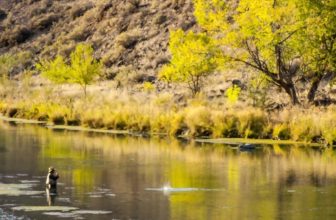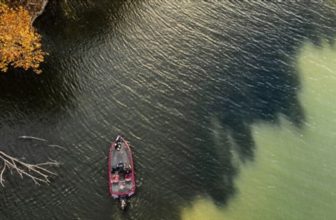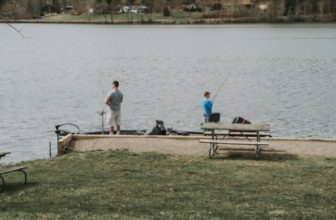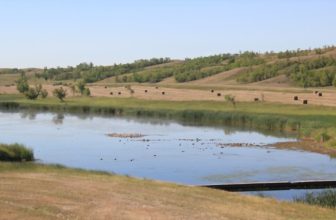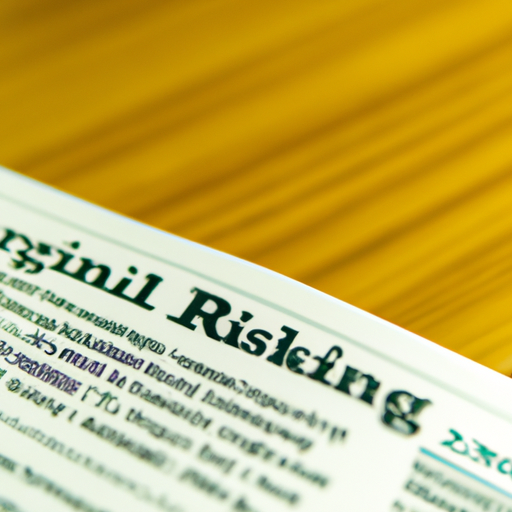
Fishing is a popular recreational activity in the state of Illinois. With the state’s abundant lakes and rivers, it’s no surprise that it’s a favourite pastime among many locals. Fishing in Illinois is regulated by the state and it is illegal to fish without a valid fishing license.
Fishing License Requirements
In order to fish in Illinois, both residents and non-residents must purchase a valid fishing license. The following are the requirements to purchase a license:
- Residents: Must be 16 or older and provide proof of residency.
- Non-residents: Must be 16 or older, must provide proof of age, and must purchase a non-resident fishing license.
- Disabled Persons: Must obtain a disability fishing license if they meet certain requirements.
Fishing Regulations in Illinois
There are certain regulations in place to ensure that fishing in Illinois is done responsibly and sustainably. This includes:
- Fishing is only allowed during the open season from April 1 through March 15.
- The creel limit for each species of fish varies and is determined by the Illinois Department of Natural Resources.
- Fishing is prohibited at certain areas, such as Chicago’s Lake Michigan shoreline.
- It is against the law to use explosives, poison, or any electrical device as a means of fishing in Illinois.
Penalties for Violating Fishing Regulations
Fishing without a valid license, or violating the state’s fishing regulations, can result in various penalties. These include fines, confiscation of fishing equipment, and even jail time. In some cases, a court can order a restitution fee to be paid to the state.
It is important to obey the state’s fishing regulations and always carry a valid fishing license while fishing in Illinois. Failing to do so can result in serious penalties.
What states require a fishing license?
The following states require anglers to have a fishing license: Alabama, Alaska, Arizona, Arkansas, California, Colorado, Connecticut, Delaware, Florida, Georgia, Hawaii, Idaho, Illinois, Indiana, Iowa, Kansas, Kentucky, Louisiana, Maine, Maryland, Massachusetts, Michigan, Minnesota, Mississippi, Missouri, Montana, Nebraska, Nevada, New Hampshire, New Jersey, New Mexico, New York, North Carolina, North Dakota, Ohio, Oklahoma, Oregon, Pennsylvania, Rhode Island, South Carolina, South Dakota, Tennessee, Texas, Utah, Vermont, Virginia, Washington, West Virginia, Wisconsin and Wyoming.
What age do you need to be to get a fishing license?
The age requirement for a fishing license will vary depending on the state. Generally, most states will require individuals to be at least 16 years old to purchase a fishing license, however there may be exceptions in certain states. It is best to check with the regulations of your specific state for the exact age requirement.
What states require you to have a fishing license?
Almost all states require a fishing license in order to legally fish in their waters. Some states that require you to have a fishing license are Alabama, Alaska, Arizona, Arkansas, California, Colorado, Connecticut, Delaware, Florida, Georgia, Hawaii, Idaho, Illinois, Indiana, Iowa, Kansas, Kentucky, Louisiana, Maine, Maryland, Massachusetts, Michigan, Minnesota, Mississippi, Missouri, Montana, Nebraska, Nevada, New Hampshire, New Jersey, New Mexico, New York, North Carolina, North Dakota, Ohio, Oklahoma, Oregon, Pennsylvania, Rhode Island, South Carolina, South Dakota, Tennessee, Texas, Utah, Vermont, Virginia, Washington, West Virginia, Wisconsin, and Wyoming.
What type of fishing license do I need in each state?
The type of fishing license you need in each state will depend on the local regulations and the type of fishing you intend to do. In some states, a general fishing license may suffice for all types of recreational fishing. In other states, you may need a separate license for certain types of fishing, such as saltwater or inland fishing. It is important to check the local regulations of each state in order to determine the exact type of fishing license required.
What do I need to obtain a fishing license in each state?
The requirements for obtaining a fishing license vary by state. Generally, you will need to provide personal information (name, address and date of birth) and payment for the license — either in the form of cash, check or card. Some states may require additional information such as a driver’s license or other government-issued ID or an additional fee if you are under a certain age. Other requirements may include a hunter’s education course or completion of a fishing license application form or a fishing regulation booklet. Finally, you may be required to provide proof of residency in the state or a valid fishing license from another state if you are a non-resident angler.
What age do I need to be to obtain a fishing license?
The minimum legal age for obtaining a fishing license varies by state. Generally, the minimum age is between 12 and 16. Some states even allow younger children to fish without a license if they are accompanied by an adult who holds a valid fishing license. It is important to check the local regulations of each state for specific age requirements.
What type of fishing license do I need?
The type of fishing license you need depends on where you are fishing, what type of fish you are angling for, and the length of time for which the license is valid. For example, some states have different licenses for freshwater fishing, saltwater fishing, and even Muskie fishing. Additionally, some states have different licenses for residents than for non-residents. It is best to consult your local state regulations to determine the appropriate type of license for your desired activity.
What does a fishing license cost?
The cost of a fishing license varies depending on the state and the type of license. Generally, a one-day fishing license will cost between $10 and $20. An annual fishing license will usually cost between $20 and $50.



